
views
- Neurodivergent love languages are ways ND people show affection. For example, info dumping is when an ND person shares details about their interests.
- Parallel play means doing activities alongside each other. Support swapping is when an ND person helps another person look out for themself or perform a difficult task.
- Deep pressure involves firm touches like hugs that help ground an ND person. Penguin pebbling is when an ND person gives small gifts as tokens of affection.
Neurodivergent Love Languages

Infodumping Infodumping is when a neurodivergent (ND) person talks about their interests or passions, often at length and in great detail. ND people, particularly those with ADHD or autism, often have particular or niche interests, and they’re often eager to share what they know. It’s an easy way to engage with other people, carry a conversation, connect, and also share passions, which is a bonding activity that isn’t exclusive to ND people. How to participate: If you can, encourage the ND people in your life to talk about their interests! They’ll be grateful for the chance to get some of that pent-up info out of their heads, and it doesn’t often involve much effort on your part, other than listening. ND people are often quick to acknowledge that infodumping can happen at inopportune or inconvenient times. If you’ve got places to be, ask them to write you a text or an email with everything they want to share, and be sure to follow up on it later.
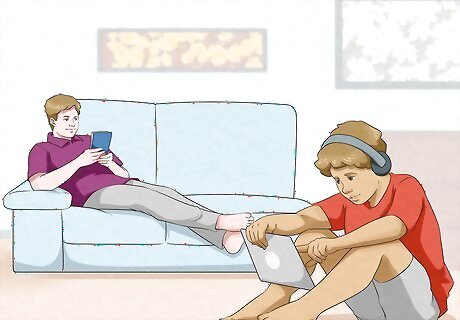
Parallel play This is when an ND person prefers to do an independent activity, but do it around their peers who are doing their own things. Extended periods of interaction or communication can be exhausting, so ND people might prefer to find connection by simply enjoying someone’s presence. It’s a low-stakes and relaxed way to say, “Hey, I want to do a quiet activity right now, and I want to be around you while I do so because I like you.” How to participate: Grab a book or a crossword and settle in! There’s not much to parallel play other than basking in each other’s company. Often, an ND person will speak up when they feel chatty, so try not to force an interaction. “Body doubling” is a related activity, and is when someone is simply present while another person is trying to focus on something that might be difficult for them. The idea is that having that silent support makes it easier to accomplish the task, without any direct intervention.
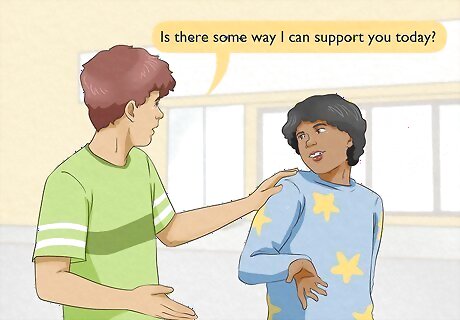
Support swapping Support swapping is exactly what it sounds like: people helping each other look out for themselves in small ways. This includes little reminders like, “Remember to drink water!” as well as more involved support, like helping someone fill out a job application. It’s connected to “spoon theory,” or the idea that people have only so much energy, quantified in “spoons,” that they can spend on activities each day. In short, support swapping is often a way to help each other conserve spoons, or energy. How to participate: As with anyone else, ask the ND people in your life if there's anything they need help with. Say, “Is there some way I can support you today?” or just let them know that you’re there if they need you. They’ll appreciate the help!
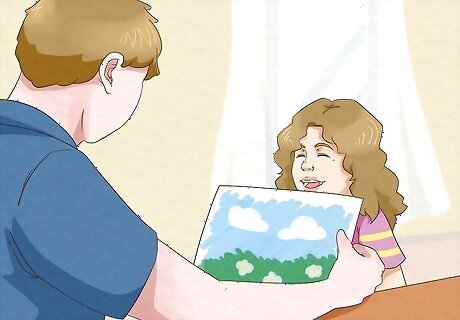
Penguin pebbling In the wild, Adelie penguins sometimes offer each other pebbles as signs of affection. Penguin pebbling, then, is when an ND person shows another person affection by offering them little objects, like trinkets or even memes. These gifts might be related to someone’s interests, or just a random object they thought the other person might like. It’s a way to say, “I found this and thought of you.” How to participate: Show your appreciation by starting a collection of your penguin pebbles. Keep them in a box somewhere easily accessible to let your loved one know that their gifts mean a lot to you, and you enjoy receiving them. It's usually okay to get rid of temporary gifts, such as if they give you a flower they found and it shrivels up the next day. Take a photo if you'd like to remember it. And if you aren't sure what to do, just ask.

Deep pressure Deep pressure is a physical gesture like a hug or a hand-squeeze that helps to calm and relax the recipient. Many people, ND included, don’t love being touched by strangers, but a big hug from someone they trust now and again helps to keep them grounded. It’s sometimes compared to stuffing a springy snake toy back into the can—it helps to contain and alleviate out-of-control thoughts or emotions. How to participate: Let your ND loved know that you’re always available to give a hug or another form of deep pressure, if they need it. Ask them how they like to be hugged or touched, and be sure to stay within their comfort zone. Deep pressure is also related to “stimming,” which is when an ND person enjoys experiencing certain physical stimulations, like playing with a fidget toy, to soothe their mind or distract them from discomfort. For someone who enjoys deep pressure while they sleep, a weighted blanket may be beneficial.
Difference Between Neurodivergent and Neurotypical Love Languages
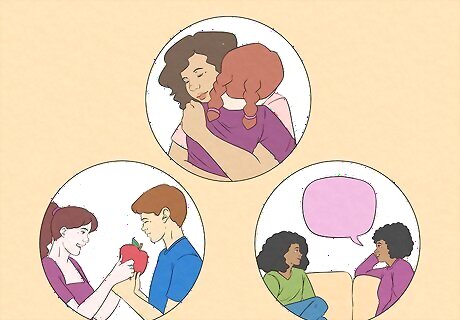
Neurodivergent people often have unique preferences for affection. Traditional love languages—words of affirmation, acts of service, receiving gifts, quality time, and touch—describe how a person most enjoys being shown affection. These can all apply to ND people, but many ND people also have their own ways they process the world, and so also have their own ways to process affection. Like anyone else, ND people can have more than one love language, or none of these languages might apply to them. For example, some ND people find light touch overstimulating, so “touch” doesn’t describe their love language. But these people might enjoy a firm hug from time to time in order to ground them, so their love language is better described as “deep pressure.” In addition, neurotypical people tend to understand the standard love languages more intuitively, but might need some explaining to understand ND love languages, since they may not have had the same experiences that ND people have had.
What is neurodivergence?
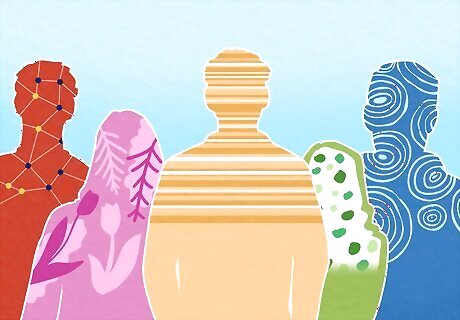
“Neurodivergent” describes someone whose brain works differently. A neurodivergent person often has different ways of thinking or processing the world around them than someone who’s “neurotypical” or who has what’s seen as a more standard experience. Some ND people have diagnosed conditions, like ADHD or autism. Others have experiences that aren’t able to be diagnosed, but which are distinct and significant anyway. It’s not a perfect term, and some people take issue with the assumption that ND people are somehow abnormal, but it’s a useful term when discussing those of us with different mental experiences. Neurodivergent people often aren’t any less capable than their peers, and in fact tend to excel in more particular or specialized areas. In many cases, though, our social structures aren’t built to accommodate ND individuals, which makes life more difficult for them.
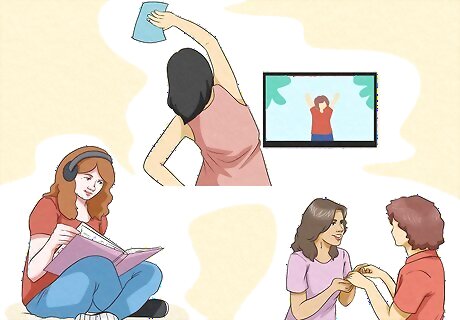
Neurodivergent people tend to have different ways of experiencing things. Neurodivergence is a broad term that describes many different traits. These can include differences in focus, body language, speech, learning, and more. One person may struggle more with communication and sensory overstimulation while another mainly deals with tics and trouble learning in a traditional school setting. They may also show strengths like creativity, compassion, pattern recognition, and more. There as many neurodivergent experiences as there are ND people! Neurodivergent people aren't all the same. They like and appreciate different things. While two neurodivergent people you know may have some things in common, make sure to get to know each one as an individual. It can be hard to communicate with people when most of them have minds that work quite differently from yours. Some neurodivergent people feel lonely or misunderstood. Being a good listener can help your ND loved ones.




















Comments
0 comment